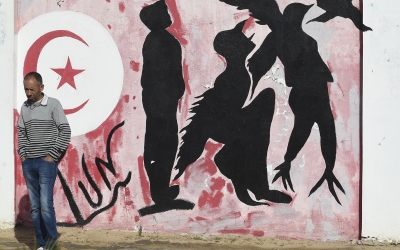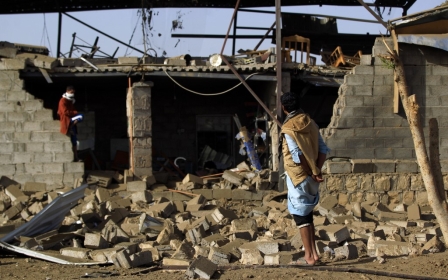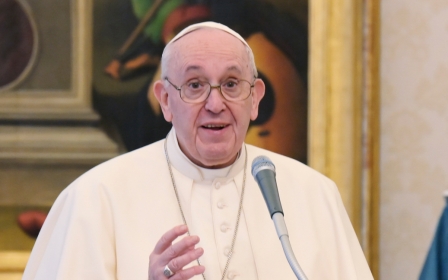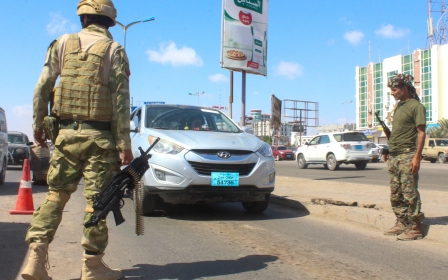Gulf reconciliation means little for warring sides in Yemen's conflict
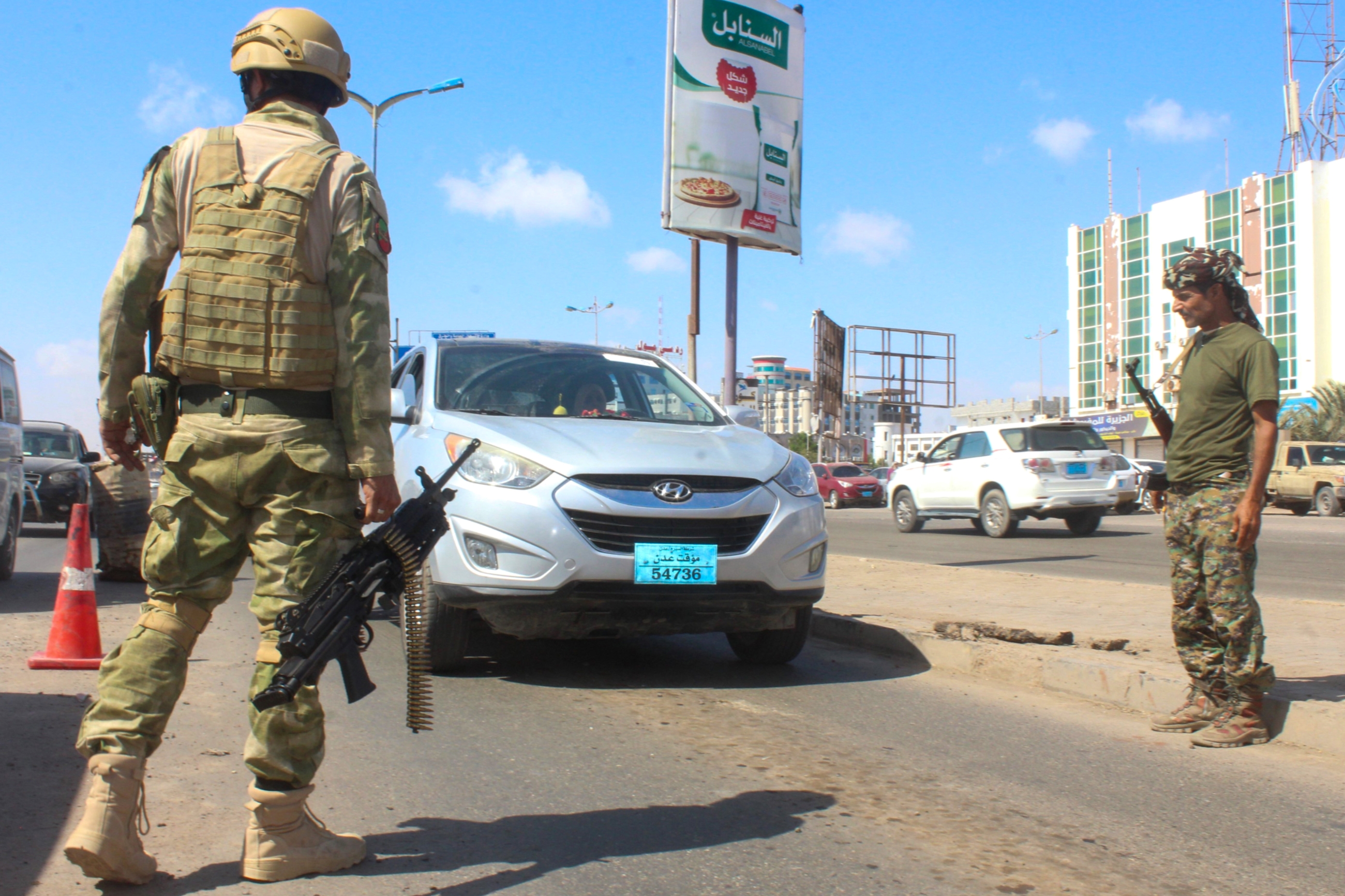
The disputes between Qatar and its neighbours in the Gulf have long had a direct impact on the fighting in Yemen, with client groups of each country helping to play out the conflict on the ground.
Last week, Saudi Arabia announced the end to the almost four-year blockade of Qatar, imposed in 2017 over accusations that the small Gulf country was supporting "terrorism" and helping to destabilise neighbouring countries.
But despite the optimism expressed in Saudi Arabia last week, and what Foreign Minister Prince Faisal bin Farhan described as the "full return of diplomatic relations," the thaw has so far had little impact in Yemen.
A major point of conflict has been between the Southern Transitional Council (STC), which is backed by the United Arab Emirates, and the Islah party, a Muslim Brotherhood-affiliated group seen as linked to Qatar.
"Since 2017, Yemenis used to accuse each other of working for the sake of the UAE or Qatar, but today there is reconciliation between the UAE and Qatar and there should be no more disagreements in Yemen based on this issue," Analyst Mohammed Suleiman told Middle East Eye.
New MEE newsletter: Jerusalem Dispatch
Sign up to get the latest insights and analysis on Israel-Palestine, alongside Turkey Unpacked and other MEE newsletters
"Unfortunately, I can hear that supporters of the STC and Islah are still exchanging accusations, and that means they can't accept each other easily."
Prior to the Gulf blockade in 2017, all parties fought shoulder to shoulder against the Houthi rebels, based in the north of Yemen, who took the capital, Sanaa, in 2015.
But with the establishment of the STC in May 2017, a month before the blockade was imposed on Qatar, tensions began to rise between the erstwhile allies.
Islah long supported President Abd Rabbuh Mansour Hadi - backed by most Gulf leaders as the "legitimate" ruler of Yemen - and had some of its leaders working as officials in the Yemeni government.
As such, they were fiercely opposed to the STC, whose ultimate goal is the re-establishment of South Yemen, the state that existed between 1967 and 1990 before it was unified with the north.
On 18 December 2020, a joint cabinet divided between the STC and the internationally recognised government was forced into place by Saudi Arabia.
While this cabinet, which has ministers from the south and north and from different parties, has reduced tensions, there still exist heavy disputes between the different sides.
Gulf agreement welcomed
The Yemeni government welcomed the Gulf reconciliation, adding that it hoped the impact of the reconciliation would be felt in Yemen.
"Congratulations on the success of Al-Ula summit and the Gulf Reconciliation Agreement which forms an important and vital step towards resuming stability and secure in the Arabian Peninsula," Prime Minister Maeen Abdulmalik tweeted on 5 January.
"We trust this will be reflected positively on the situation in Yemen and its political and economic support, ending the coup and achieving peace."
The Houthis also welcomed the agreement, with Mohammed Ali Al-Houth, a former president of the Houthis' Revolutionary Committee, tweeting that he hoped it would see the "beginning of the end of wars and tensions in the region" and lead to the "lifting of the siege on Yemen".
Despite the warm words from some of the major players in the Yemen conflict, the STC and Islah gave the agreement a much colder reception.
The STC congratulated the success of holding the Gulf summit and issued a press release that stressed the need to make the most of the Gulf and Arab reconciliation to unify efforts to confront various security challenges.
However, on 5 January Salem Al-Awlaqi, a member of the presidency of the STC, tweeted that the agreement meant little for Yemen until Qatar ended its support for the Houthis (which Qatar has long denied giving) and Islah and stopped "inciting against the efforts of security and stability".
A supporter of the STC in Aden, talking on condition of anonymity because he isn't authorised to speak to media, told MEE that the STC had long clashed with Islah and could not just forget the "bad history" between them.
"The Muslim Brotherhood leadership fought us in 1994, and its scholars have issued fatwas to kill us and fighters did, so it is very difficult to forget that," he said, referring to the period of an earlier civil war between the north and south.
"We are happy with the joint government, and that's a great step for us, but we have other steps until we achieve independence and exile the Muslim Brotherhood from our country."
'As long as Iran supports the Houthi militia and the UAE supports the STC, there won't be any solution in Yemen'
- Islah member
He added that he hoped the Gulf reconciliation deal would see Qatar join other countries in the region in declaring the Brotherhood a terrorist organisation.
Similarly, Islah members have been sceptical of any real shift.
"We know that Saudi Arabia and the UAE are fighting Islah because they don't want a free party to lead the country, but they need people who are willing to work under their control," an Islah supporter in Aden told Middle East Eye, on condition of anonymity.
He said the STC would never accept Islah because the former was implementing the agenda of the UAE, which has staunchly opposed the Muslim Brotherhood across the region.
"We should take the lesson from the Gulf reconciliation and do a Yemeni reconciliation far from Gulf countries or any other country... no country wants us to live peacefully," he added
"As long as Iran supports the Houthi militia and the UAE supports the STC, there won't be any solution in Yemen."
No easy solution
Suleiman told MEE that, while he hoped the Gulf reconciliation would have an impact on Yemen, he felt pessimistic listening to how the STC and Islah continued to talk about one another.
"We should learn some lessons from the last few years about how divisions destroy countries. I think the reconciliation is good for the whole Arab world," he said.
Suleiman stated that there was a chance for Yemenis in the pro-Hadi areas to unite now as the government is drawn from both sides, coupled with the reconciliation between the Gulf countries that have played major roles in the Yemen war.
“My message to those people is to prioritise the interest of the country on their own and Yemen will win from any reconciliation," he said.
"If Yemenis don’t accept each other, the coming years will be worse and disagreements will continue to destroy the country.”
Middle East Eye delivers independent and unrivalled coverage and analysis of the Middle East, North Africa and beyond. To learn more about republishing this content and the associated fees, please fill out this form. More about MEE can be found here.


